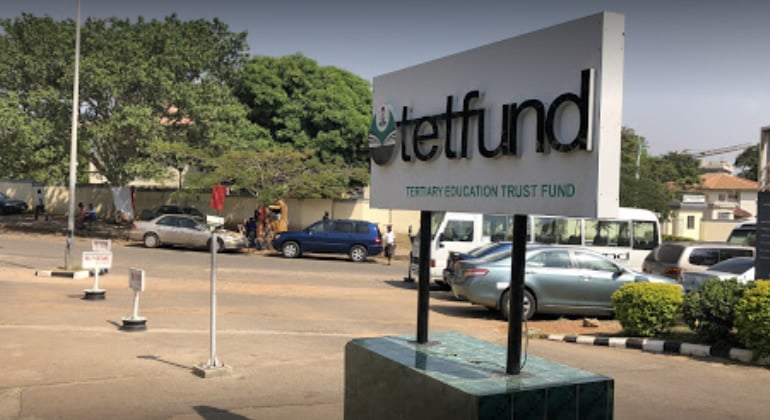Meet UNESCO Benchmark on Education Funding to Us, TETFund Pleads with FG

The Tertiary Education Trust Fund (TETFund) has called on the Federal Government to significantly increase its budgetary allocation to the education sector in line with global standards set by UNESCO.
TETFund’s Executive Secretary, Sonny Echono, made the appeal on Tuesday while delivering the 13th Convocation Lecture of Nile University in Abuja.
The lecture was titled “Redefining the Nigerian Education System for the 21st Century Workforce.”
Echono noted that Nigeria currently dedicates only about seven per cent of its national budget to education—far below UNESCO’s recommended benchmark of 15–20 per cent.
He emphasized that improved funding would enable the sector to acquire modern learning tools, digital infrastructure, advanced laboratories, and qualified teaching personnel.
He pointed to Rwanda and Kenya as examples of African countries making notable progress in education after allocating 18 per cent and 16 per cent of their national budgets to the sector in 2021.
According to him, Nigeria’s curriculum at the primary, secondary, and tertiary levels requires an urgent overhaul to produce graduates who can compete in a rapidly evolving global workforce.
“Existing curricula, particularly in secondary and higher institutions, fall short of the skill requirements demanded by today’s job market,” he said.
Echono stressed the need to mainstream digital literacy, entrepreneurship, and technical competencies across all levels of learning.
He added that subjects such as artificial intelligence, renewable energy technologies, data science, and financial literacy should become standard offerings in schools.
Echono expressed concern that despite universities producing thousands of graduates annually, unemployment and underemployment among young people continue to rise. He attributed this to a fundamental disconnect between the skills taught in schools and those required in the labour market.
He further emphasised the importance of integrating information and communication technology in teaching, describing it as vital for preparing Nigerian students for future jobs influenced by automation, innovation, and globalisation.
To address these challenges, Echono advocated the establishment of a comprehensive professional development framework for teachers to enhance their capacity for modern teaching methods. He also underscored the need to strengthen entrepreneurship training so that graduates are equipped to create jobs rather than depend solely on formal employment.
He lamented that technical and vocational skills remain underutilised in the country despite their potential to reduce youth unemployment. Citing successful vocational training models in Germany and South Korea, he called for reforms that blend academic learning with practical skills acquisition. “Policies such as the National Skills Qualification Framework and other initiatives led by the National Board for Technical Education are important steps toward integrating vocational training into mainstream education,” he said, adding that the Federal Ministry of Education’s new TVET reforms are commendable.
Echono concluded by urging all stakeholders to work collectively to reposition Nigeria’s education system for the demands of the 21st-century global economy.









